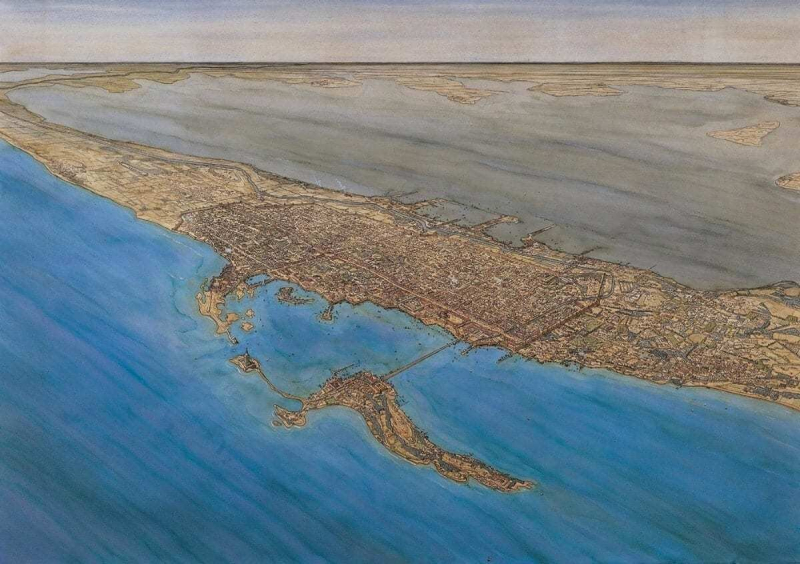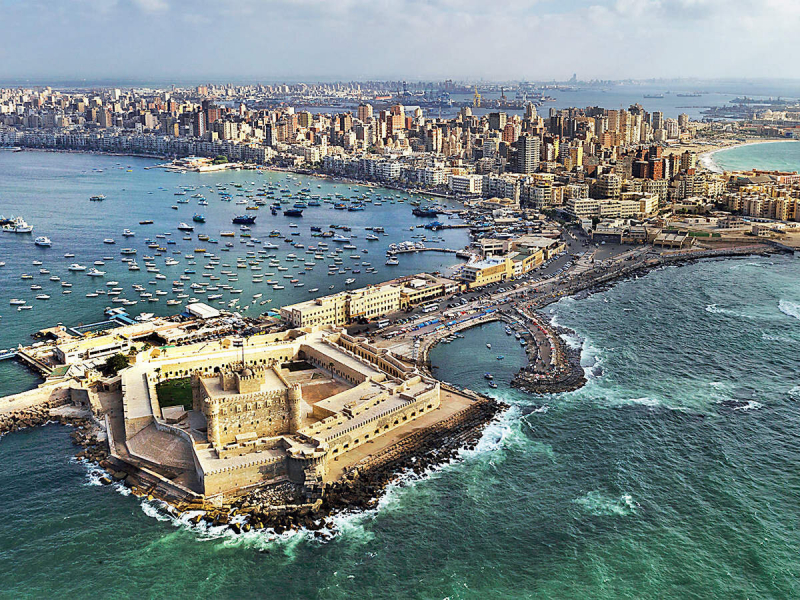Alexandria
The Hellenistic East's historic cities took great pride in their founders. Alexandria had a genuine star. In 332 BCE, the fabled conquistador Alexander the Great established the Egyptian capital. Alexandria, in the Nile delta on the Mediterranean coast, was to serve as the seat of Alexander's new empire. But Alexander never got to see the metropolis he had imagined. He started a Persian campaign soon after the founding. Alexander's general Ptolemy returned Alexander's remains to Alexandria when he passed away in Babylon in 323 BCE, and he designated Alexandria as the seat of the newly established Ptolemaic monarchy.
Alexandria prospered throughout the Ptolemaic period. As a hub for business and trade, it replaced Tyre (the city that Alexander had previously devastated). Under Ptolemy I, the city's world-famous Library was established, transforming Alexandria into a hub of study and culture that attracted intellectuals, thinkers, scientists, and artists. Visitors were reminded of the illustrious founder of the city by the opulent tomb of Alexander, which also served as a source of pride for the locals. The city was connected to the island of Pharos, which was home to the magnificent Lighthouse, one of the Seven Wonders of the Ancient World, by a massive causeway and port barrier called Heptastadion. With more than 500,000 residents, Alexandria was the biggest city in the world by the third century BCE. It was a global metropolis.
After the Roman invasion in 44 BCE, Alexandria's position as a center of learning and culture remained unaltered. Alexandria was the origin of the Septuagint (the Greek translation of the Bible) in 132 BCE and was home to the greatest Jewish diaspora in the Roman Empire. The old Roman city gained fresh significance as one of the most significant centers of Christianity and a hub of Christian theology in the fourth century. Alexandria's lighthouse eventually brought fame to the city, and it was named one of the Seven Wonders of the Ancient World. In addition to the lighthouse, it was referred to as the bride of the Mediterranean since it was the biggest city in the area. Many travelers come to this city to see the well-known lighthouse that Alexandria still has today.
















